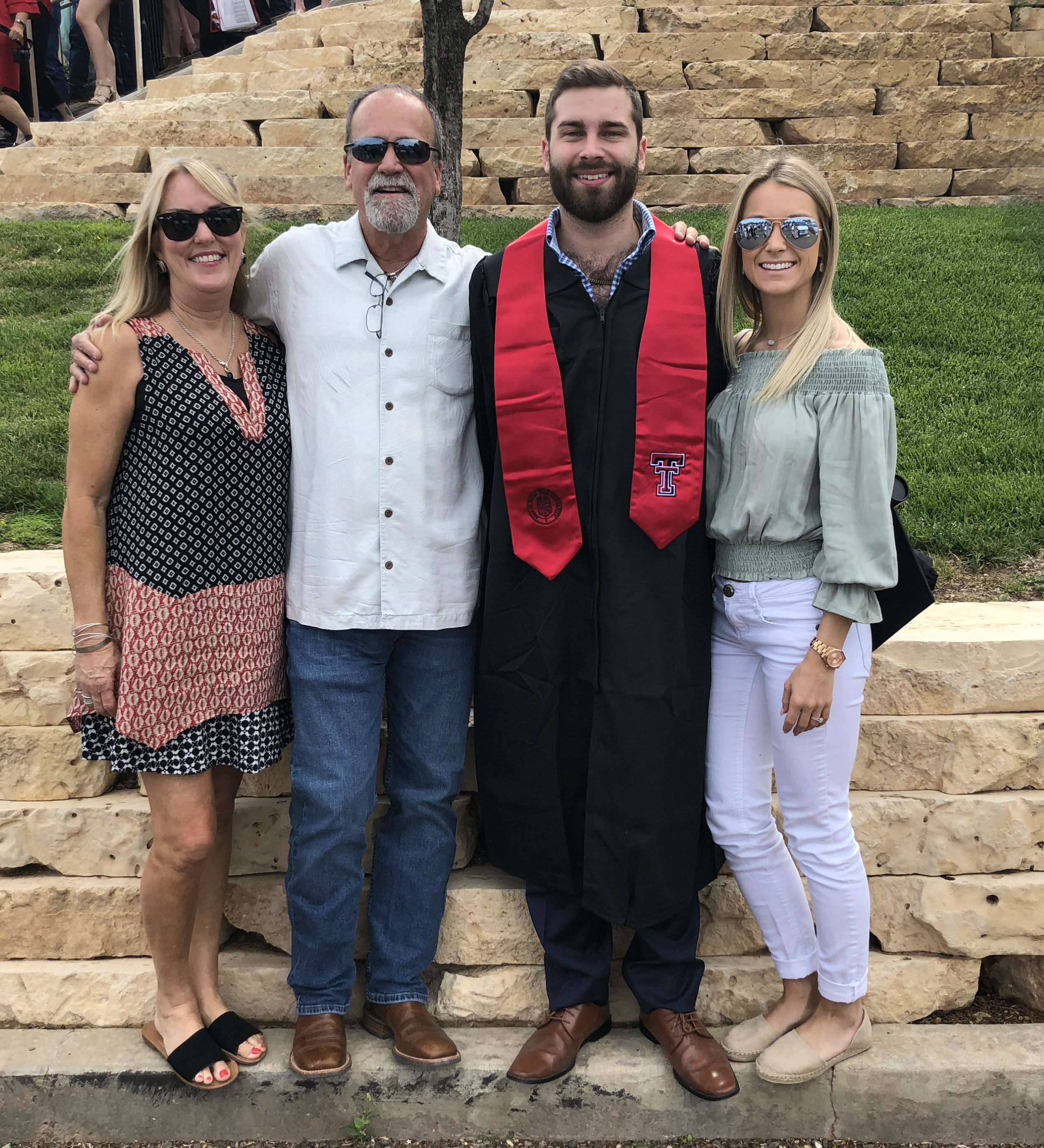Most people don’t just wake up and say, “I’m going to go into prison and help prisoners.” Especially a guy like me: All I wanted to do was feel good and party and make a lot of money. To turn back around and go to prison, or to AA and help people sober up … But that’s really where my passion is now, and my vocation.
It all really was this whole 10-year journey of, “Put down the bottle, quit thinking about yourself, and start thinking about others.” And it’s just amazing.
New calling
I’m pretty open with my story. I’m not anonymous. I want everybody around me to know. I want that accountability.
The quick story is that I sobered up almost 10 years ago. I got into AA. The premise there is to stop drinking, quit thinking about yourself and serve others. Some older guys helped me sober up, then I started giving back — I’d sponsor people, try to help them get sober.
After two years, I went to a retreat that kicked me into more spiritual growth. I saw all these men who seemed like perfect guys. But they shared their stories and I realized, “Wow, we’re all just screwed-up.” It fundamentally changed my life.
I got back into church, and one of my friends said, “We go into prison. You’d be the perfect guy to do this.” At first, I avoided it, which was easy because I usually had a business conflict during the twice-yearly retreats. Finally my friend said, “I don’t think you want to do this.” I said, “You’re right. I spent my life trying to stay out of prison, so I don’t want to go to prison.” He said, “Just go — you’ll either love it, or it won’t be for you and it’ll be a one-off.”
So I went. It’s a Christian ministry called Kairos. It lets these guys in prison know that their life isn’t over. During training, the chaplain said, “I know some of you are wondering, ‘Why am I doing this? These guys are prisoners; they deserve to be here.’ But most of these guys are going to get out. Would you rather they have the love of Christ in them, or that they get angrier and more bitter? Don’t you want them to understand there are people who pray and care for them?”
It clicked. I realized it’s a little like what we do in AA. So I went, and it was the most unbelievable thing. I got to reflect a lot. I was able to forgive people in my own past; I was able to forgive myself. It helped me heal.
Time of transformation
It’s a weekend when we feed them and talk about our stories. We go in Thursday evening and meet the group of 42 guys, who we call “brothers in white” or “men in white.” We don’t call them prisoners or inmates, we don’t use their numbers — they actually have names. Then the volunteers are called “brothers in color,” because we wear more colorful clothes.
Then all day Friday, Saturday and Sunday, there are a lot of great talks, one building on the last. I was asked to discuss forgiveness of self. I can’t tell you how many of the people I met are in there for vehicular manslaughter. So I tell them I was an alcoholic and I had a hard time forgiving myself for a long time. I explain that I made certain choices back then, but that’s not who I am — it’s what I did.
On Sunday, there is a closing ceremony. The brothers in white come back in the room, which has been transformed into a different look. They get to have an open mic and share their experiences. It’s amazing to hear guys say that they’re going to drop their gang colors, put their trust in the Lord, and be good fathers.
It can be such a dramatic thing. One year, 17 of the 42 men denounced their gangs. When we came back, half were beaten to a pulp. They call it “blood in, blood out.” But then one guy got up and said, “I’ve been dancing for the devil my whole life. I’m playing for the other team now.” Of course everybody was cheering.
Some of them have gone away for 20 years, and have never met their kids. Then the kids go in to meet their dad and, man, it’s a heart-warming thing.
Our job really is to give them an opportunity to meet and form their own community. Now they can get together and discuss things: How do we live with what we did; What are we going to do when we get out? When they get out, they’ll need their brothers to help them get better.
Some ex-offenders do volunteer. Talk about guys who make a difference! They were there, they changed, and now they’re out here. One guy comes all the way from Houston, back to the unit where he was incarcerated to help them pull out of the pit.
Intensive take-away
It can be intimidating, especially at first. When that gate slammed the first time, I almost jumped out of my skin. There are officers all over the place. Then you see that razor wire and people tatted up all over the face. But after that first time, I had this wonderful peace. Now I feel like I’m walking into your living room.
It’s really amazing to watch people transform … murderers, rapists, bank robbers — you name it. I’m friends with a lot of these guys who get out. They’re fine, upstanding people. A lot of them are drug addicts or alcoholics who did stuff they’d never have done sober. It doesn’t take a rocket scientist to figure out this is a good thing for a guy like me to do.
The ministry is based on a passage from Matthew, where Jesus says, “When I was in prison, you visited me.” He was asked, “When did I visit you in prison?” And Jesus says, “When you did it for the least of these, you did it for me.” That makes so much sense to me now.
There is no question that I’m doing what I’m supposed to do.




